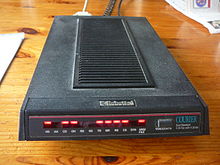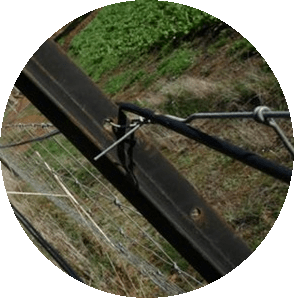From the “It Could Be Worse”-Department, the Canadian Press reports hundreds of thousands of Canadians are still stuck in the dial-up world, either because they live too far away from a cable company, their local phone company will not extend DSL service to their home, or they cannot afford the high prices Internet Service Providers charge for the service.
The National Capital Free-Net, one of the oldest Free-Net dial-up networks, still has 3,600 users in the Ottawa area looking for low-cost or free access.
The broadband-less account for up to 366,000 Canadians still stuck in the Internet slow lane, with large concentrations in rural areas creating problems for a country that increasingly turns online for information, entertainment, and education.
While many consumers can recall the dial-up experience of a decade ago, today’s online world is replete with multimedia-rich advertising, complicated web pages, and other content that was never designed for anything less than a broadband connection.
CP found the Toronto Blue Jays’ official website features more than four megabytes of content, including pre-loading embedded video and graphics. In all, nearly ten minutes passed before the website gradually loaded to completion. Other comparatively “small” websites with a megabyte of content still took 4-5 minutes to finish, enough time to grab a cup of coffee.
As web pages become even more complex, dial-up users are now starting to avoid the web altogether, preferring to focus on e-mail and only the most essential online services. Some more tech-savvy users use content filtering software to block ads or shut off graphics, but that only goes so far. Today’s online banking and commerce sites often use plug-ins to handle transactions, which further complicates checking bank balances or paying bills online.
While users familiar with the time it takes to send complex images or sound files across a dial-up connection avoid including them in e-mail messages, broadband users don’t think twice.
That forces some dial-up users to discriminate.
[Ross Kouhi, executive director for the National Capital FreeNet] has a sister who lives in a rural area and until recently only had dial-up access. His family learned to leave her out of group emails when it came to sharing photos, he says.
“You always have to remember to not send the big pictures to the one sister, to save her the grief, because she would say it would take her all night to download a big pile of photographs,” Kouhi says.
“And she’d come back in the morning and they weren’t anything she wanted to see anyways.”
The problem will not get resolved until phone and cable companies broaden access to the Internet in more rural communities and lower the price for income-challenged consumers that cannot afford an extra $30 a month for broadband access. Without reform, a cross-section of Canada will continue to endure a digital divide.


 Subscribe
Subscribe







